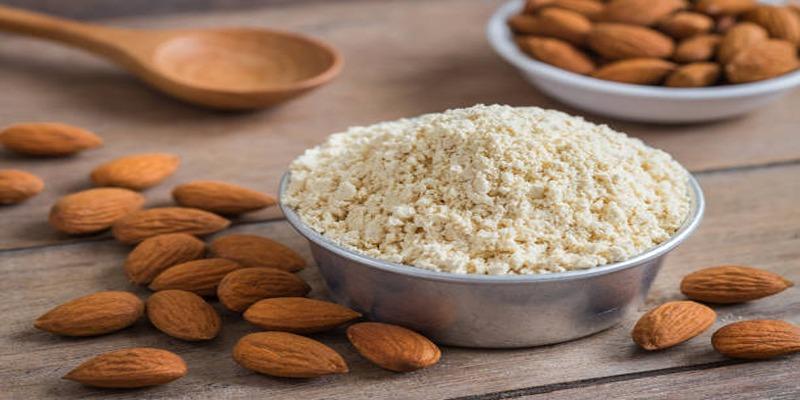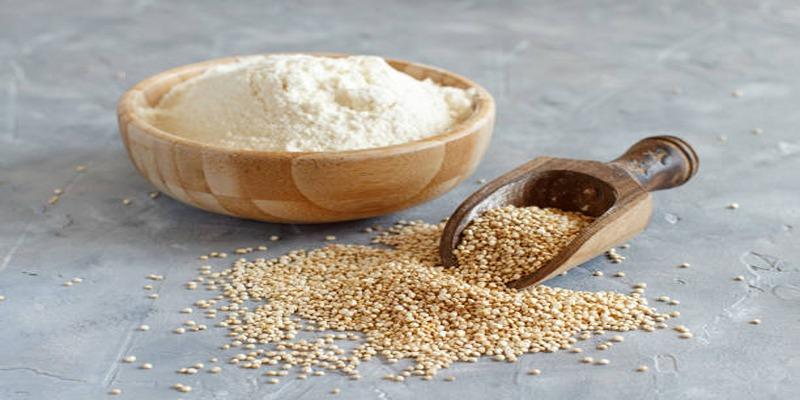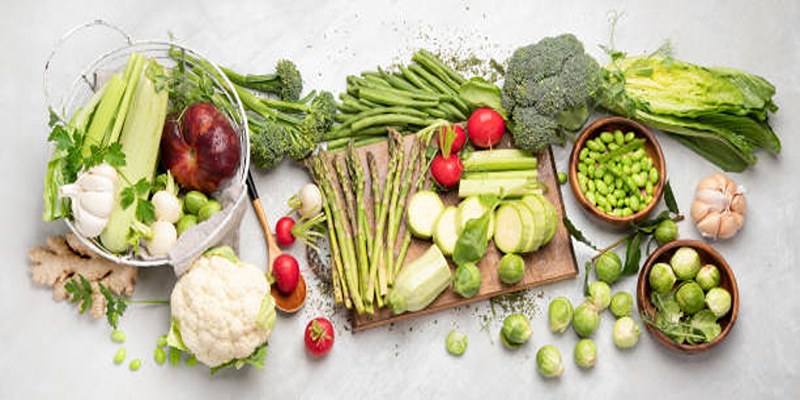Substituting to healthier flour alternatives can take both your recipes and your eating to the next level. This guide will cover what are some common substitutes, how to select the best one, offer cooking and baking tips, and inspire you to try new things. Let's turn your kitchen into a center of healthy creativity!
Understanding Flour Substitutes
Flour alternatives are foods that can take the place of regular wheat flour in cooking, providing distinct flavor, texture, and nutritional value. They suit many types of diets, such as gluten-free, low-carb, and high-protein diets. In contrast to regular flour, these alternatives tend to contain less refined carbohydrates and more vitamins, minerals, and fiber.
Although some substitutes, such as almond or coconut flour, are made from one ingredient, others are combinations of more than one grain, nut, or legume. Each offers unique properties, making it flexible while specific to use in specific recipes. Once you know their uses and advantages, the options are limitless.
Common Healthy Flour Substitutes
Discover the realm of healthy substitutes for flour and learn about the individual advantages of each variety for various dietary requirements and tasty recipes.
1.Almond Flour

Produced by grinding blanched almonds into a powder, almond flour is a naturally gluten-free, nutty-tasting versatile option chock-full of healthy fats, protein, and Vitamin E. With a moist texture and nutty flavor, it's a top choice for baked goods such as cakes, cookies, muffins, and quick breads. In addition to tasting great, almond flour also provides some additional nutritional benefits, making it an excellent choice for health-conscious bakers or those who keep low-carb or paleo.
2.Coconut Flour
Made from dehydrated coconut flesh, coconut flour is a specialty gluten-free option that is extremely absorbent and rich in fiber. Its low-carb nature makes it ideal for keto and paleo dishes, but it does need additional liquid in recipes because of its high absorbency. With its mild coconut sweetness, it's great for making desserts such as cakes, cookies, and pancakes, and it's also a nutritious addition to savory foods like breaded breading or sauces.
3.Oat Flour
Oat flour is prepared by grinding oats finely, and when made from certified gluten-free oats, it is gluten-free by nature. Oat flour has a light, nutty taste and can be used as a perfect choice for pancakes, muffins, breads, and cookies. Oat flour contains a high percentage of beta-glucans, a soluble fiber that works positively for the heart health of the individual, and hence it becomes an ideal choice for a healthy diet. Its versatility and nutritional value make it a favorite with home bakers and health-conscious people alike.
4.Chickpea Flour
Also referred to as gram flour or besan, chickpea flour is a nutritional powerhouse. It is rich in protein, fiber, and nutrients, in addition to being naturally gluten-free. Owing to its earthy, nut-like flavor, it pairs very well in vegetarian dishes like flatbreads, fritters, batters, and even as a thickener for soups and sauces. Chickpea flour's dense quality and nutritional profile make it very popular in vegan and vegetarian cuisine as well.
5. Rice Flour
Rice flour, available in white and brown varieties, is a versatile staple in gluten-free cooking and baking. White rice flour has a mild, neutral flavor, perfect for cakes, cookies, and thickening soups or sauces. Brown rice flour, with its nuttier taste and higher fiber content, offers a healthier option. Both types are easy to use and widely accessible, making rice flour a dependable gluten-free choice for various recipes.
6. Cassava Flour
Made from the starchy root of the cassava plant, cassava flour is a gluten-free substitute that closely mimics the texture and properties of traditional wheat flour. Its neutral flavor makes it incredibly versatile, working well in baked goods, pancakes, and as a thickening agent for soups and sauces. Unlike some other gluten-free flours, cassava flour is easy to use in recipes because it doesn’t require extra adjustments, making it a favorite for gluten-free bakers and cooks.
7. Buckwheat Flour
Despite its misleading name, buckwheat is not related to wheat and is completely gluten-free. This hearty flour has an assertive, earthy flavor that works wonderfully in recipes like pancakes, waffles, noodles (such as soba), and even breads. Buckwheat flour is also rich in nutrients, including fiber, antioxidants, and essential minerals, making it a great choice for those looking to add more wholesome ingredients to their diet.
8. Quinoa Flour

Quinoa flour is made by grinding quinoa seeds into a fine powder, resulting in a high-protein, high-fiber gluten-free flour. Its robust flavor adds depth to recipes, making it a great option for savory dishes like crackers, flatbreads, or pizza dough. Quinoa flour also works well in slightly sweet applications, such as muffins or banana bread. In addition to its versatility, quinoa flour is packed with nutrients, including all nine essential amino acids, making it a nutrient-dense choice for health-conscious cooks and bakers.
Choosing the Right Flour Substitute
When using flour substitutes, consider:
- Dietary Needs: Match substitutes to your goals (gluten-free, low-carb, plant-based).
- Flavor: Almond and coconut add sweetness; chickpea and buckwheat are savory.
- Texture: Almond flour adds density; cassava mimics wheat.
- Binding: Add eggs, xanthan gum, or chia seeds for gluten-free flours.
Tips for Cooking and Baking with Flour Substitutes
Cooking and baking with healthier substitutes require some knowledge of how they work. Here are practical tips to ensure your recipes are successful:
- Adjust liquids: Gluten-free flours like coconut absorb more liquid, so tweak moisture levels.
- Mix flours: Combine substitutes (e.g., almond + coconut) for better texture and flavor.
- Add binders: Use eggs, flaxseeds, or psyllium husk for structure.
- Expect trial and error: Substitutes aren’t identical to wheat flour.
- Sift flours: Avoid clumps for smoother baked goods.
Benefits of Flour Substitutes for Your Health
Using flour substitutes can have measurable advantages beyond just catering to dietary restrictions. Health benefits include:
- Improved Digestive Health: Options like chickpea or oat flour are rich in fiber, aiding digestion and promoting gut health.
- Reduced Carbohydrate Intake: Low-carb alternatives like almond and coconut flour are ideal for managing blood sugar and supporting weight-loss goals.
- Higher Nutritional Value: Unlike refined wheat flour, many substitutes are packed with vitamins, minerals, and antioxidants, contributing to overall well-being.
- Better Satiety: High-protein and high-fiber substitutes keep you full longer, curbing unnecessary snacking.
- Gluten-Free Adaptability: Those with celiac disease or gluten sensitivities can enjoy a variety of dishes that meet their dietary needs.
Conclusion
Healthy flour substitutes bring versatility, flavor, and nutritional benefits to your table. By understanding their properties, making mindful choices, and applying useful tips, you can transform your cooking and baking. Whether you're an experienced chef or a novice, experimenting with these alternatives will inspire creativity and lead to healthier meals for you and your family.












